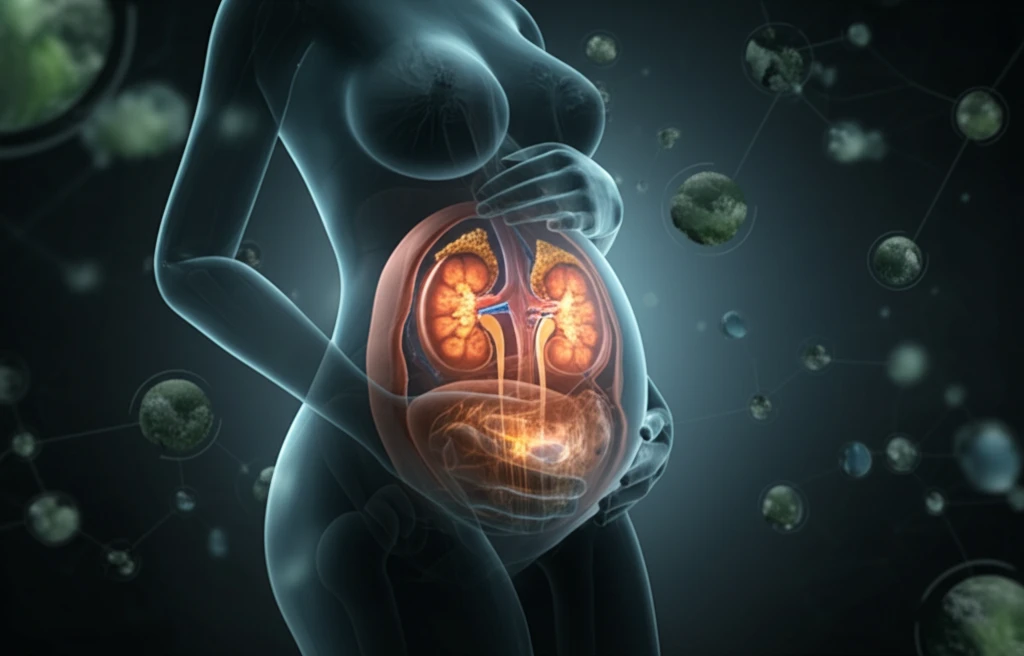
Kidney Health: Can Mom's Health During Pregnancy Make a Difference?
"New research explores how a mother's health during and after pregnancy affects her child's kidney health, offering hope for managing conditions like Polycystic Kidney Disease (PKD)."
The health of a mother during pregnancy and immediately after childbirth has long-lasting effects on her child. Groundbreaking studies have shown that a mother's well-being during these crucial times can influence everything from the baby's weight at birth to their risk of developing diseases later in life, including high blood pressure, kidney problems, and diabetes.
When it comes to kidney health, these early stages of development are especially important. The kidneys are particularly susceptible to disturbances in the womb, with any issues potentially leading to reduced nephron endowment—the number of filtering units in the kidney. This reduction can lead to future health complications.
A recent study sheds light on how the prenatal and postnatal maternal environments impact kidney health, particularly concerning nephron endowment, renal function, and blood pressure in the context of Polycystic Kidney Disease (PKD). PKD is a genetic disorder causing cysts to grow in the kidneys, which can lead to serious health issues. This research offers hope and potential strategies for mitigating the disease's impact through careful maternal care.
Understanding the Study: Maternal Health's Impact on Kidney Development

The study, published in the Journal of Developmental Origins of Health and Disease, investigated the effects of maternal health on kidney development using a rodent model of PKD—the Lewis polycystic kidney (LPK) rat. Researchers compared LPK pups born and raised under different maternal conditions to understand how prenatal and postnatal environments influence kidney health.
- Control Group (LPK): Pups born from and raised by mothers with the full PKD phenotype, representing a less-than-ideal prenatal and postnatal environment.
- Postnatal Improvement Group (LPK:Pn): Pups born from LPK mothers but cross-fostered to healthy heterozygous LPK mothers immediately after birth, improving their postnatal environment.
- Prenatal and Postnatal Improvement Group (LPK:Pr/Pn): Pups born from and raised by healthy heterozygous LPK mothers, thus experiencing improved prenatal and postnatal conditions.
- Genetic Background Variation Group (WKY-LPK:Pr/Pn): Pups born from and raised by healthy heterozygous mothers on a different genetic background (Wistar Kyoto), to explore whether genetic factors play a role in outcomes.
Key Findings and What They Mean for Kidney Health
The study revealed several significant findings:<ul><li><b>Nephron Endowment:</b> LPK rats had approximately 25% fewer nephrons than their healthy counterparts, highlighting the impact of the disease on kidney development.</li><li><b>Improved Growth and Function:</b> Pups in the improved environment groups (LPK:Pr/Pn and WKY-LPK:Pr/Pn) showed better postnatal growth, improved kidney function, and reduced blood pressure compared to the control group.</li><li><b>Genetic Influence:</b> The WKY-LPK:Pr/Pn group, with a different genetic background, exhibited the most significant improvements, suggesting that genetic factors can interact with maternal environment to influence outcomes.</li><li><b>Postnatal Impact:</b> Even improving the postnatal environment alone (LPK:Pn) led to some benefits, though less pronounced than when both prenatal and postnatal conditions were optimized.</li></ul>These findings underscore the importance of both prenatal and postnatal maternal health in shaping kidney development and function. A healthy maternal environment can mitigate the severity of PKD and potentially delay disease progression.
